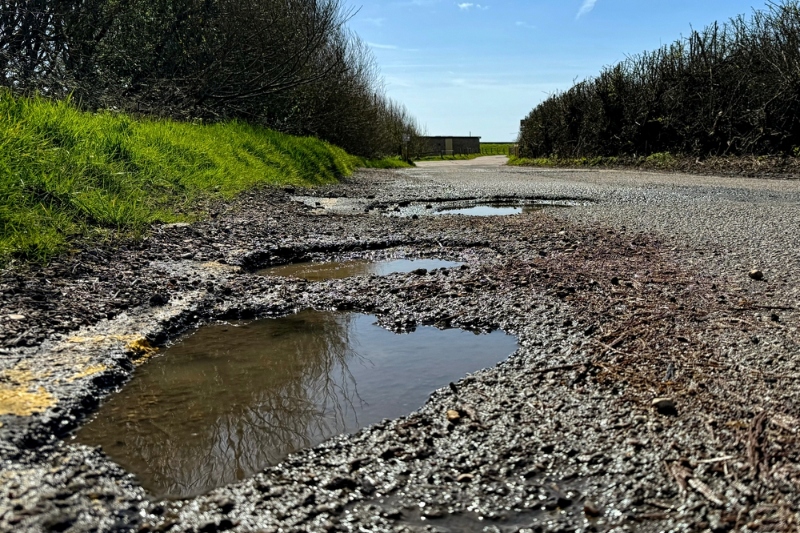MPs have called England’s local roads a ‘national embarrassment’ and slammed the Department for Transport (DfT) for not taking its responsibility for the issue seriously enough.


A Public Accounts Committee (PAC) inquiry concluded that the DfT had insufficient knowledge of the state of local roads, after the department said last November that their condition was ‘stable’ – despite rising levels of pothole-related incidents in recent years, falling public satisfaction, and industry estimates that the situation was worsening.
The AA did, however, report this week that it attended slightly fewer incidents thought to be caused by potholes in 2024 than in 2023: a drop from 647,690 to 643,318.
The PAC also found that the DfT did not know how councils spend the more than £1bn a year it provides for local roads maintenance, and criticised its short-term approach to funding – which the department itself admitted was ‘not best value for money’.
The PAC’s report said providing funding on an annual basis was likely to have pushed councils to focus more on reactive repairs than preventative work, and called for a simplified funding system and longer-term certainty.
MPs on the committee also said the DfT had not given councils enough support and guidance to deal with current or future challenges.
PAC chair Geoffrey Clifton-Brown said: ‘As well as harming the prospects for our economy and communities’ own social wellbeing, highways riddled with potholes pose an increasing safety threat to road users.
‘Alarmingly, however, not only is the state of our local roads on the downslope, our inquiry shows Government are having to find out about these issues from industry bodies and road users themselves due to their own patchy data.’
Local Government Association transport spokesperson Adam Hug said: ‘Greater, long-term funding certainty for local highways authorities – with five yearly funding allocations on a par with National Highways – is needed to tackle the multi-billion pound local roads backlog, as this report recommends.
‘This will enable councils to far more effectively plan for and invest in preventative treatments, which keep surfaces in better condition for longer.’
Sign up here to receive our free weekly news bulletin and quarterly e-book.